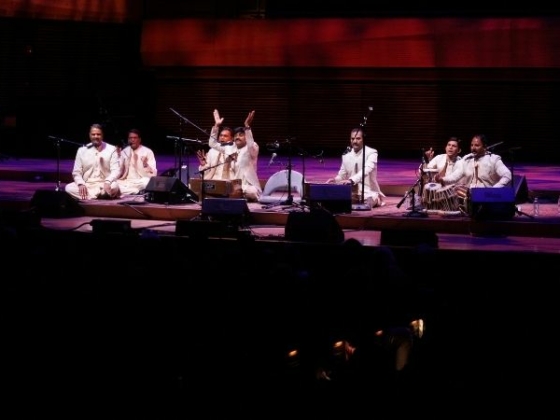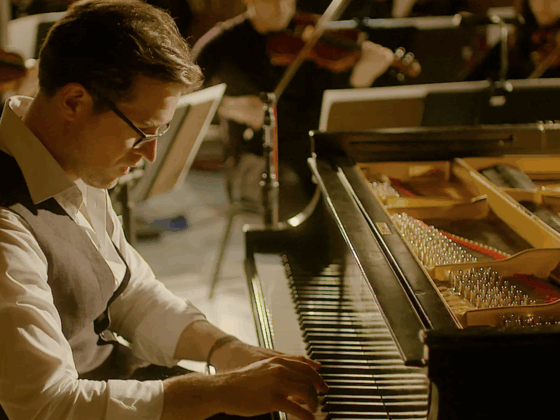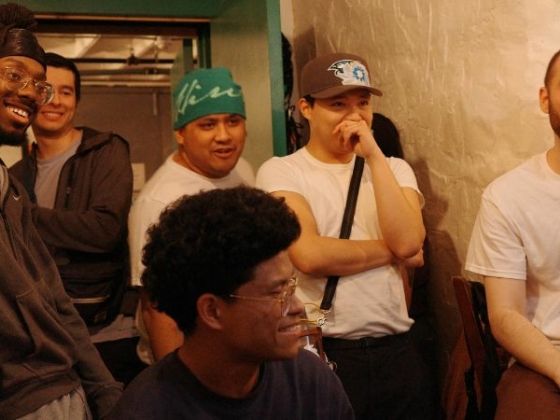Petra Glynt (Alexandra Mackenzie), as we shared in a previous post, was set to begin the UK/European leg of her tour in London on October 29th. Instead, after hours of questioning at Gatwick airport, she was denied entry and subsequently detained until the morning of the 31st, both in a detention room at the airport and at Colnbrook Immigration Removal Centre. We spoke with Mackenzie to get her detailed account of the experience, which she began documenting in a journal following her denial.
Mackenzie arrived at Gatwick airport on the morning of October 29th, equipped with all the necessary documentation to enter with a PPE ("Permitted Paid Engagements") Visa, a short term visa that allows non-EEA persons to enter the UK for up to a month to partake in a paid engagement. She only had three dates booked to play in the UK, after which she would be moving on to Europe. She was traveling alone with plans to join the members of Doldrums that morning.
Upon her initial interaction with the customs officer, she was informed that there was an issue around the fact that she was getting paid, and was automatically sent to a detention room where she was body searched, finger printed, had her photo taken, and her property taken away (no cameras allowed). There she waited until she could meet with her Immigration Officer in a small private room with its chairs chained to the floor.
Mackenzie, nervous but not believing she would be refused entry, answered the officer's questions directly and succinctly as the officer wrote it all down. She was subsequently brought back into that room two more times for clarifications, and finally around 7 pm she was denied entry into the country. It was at this point she was scheduled with a flight back to Halifax (they are required to provide a flight back to where you took off from, and Mackenzie had played her last show on the east coast) at 11 pm the next day and was told she would be taken to a centre overnight that was "not a prison" – Colnbrook Immigration Removal Centre.
Along with two other women from Grenada who ended up being her roommates during her stay, Mackenzie took the hour long ride to the centre in a paddy wagon in which they were separated from the driver by a wall that contained a small plexiglass window that would lock shut. Mackenzie says her time getting to know her fellow detainees was the silver lining to the whole experience. Once they arrived they were processed (they had prints and photos taken again and received a detainee card) and escorted to the Sahara Women's Unit where they would stay. The following is Mackenzie's description of her time there:
"The building itself was fortified by tall metal fences with barbed wire at the top, strong gates, and barred windows. It was a prison. I don't care what they call it. Once entering our unit we were given food, we showered and went to bed. The following day we followed a time structured regiment with a visit to the “shop” at noon which involved walking over to the men’s long-term unit (I am assuming it was long term) across the way and getting a top up for our phones….Oh yes, they gave us cellphones without cameras so we could make calls. We then visited the courtyard for “fresh air” and to me, though I’ve never visited a prison courtyard, it felt iconic with sad plants straining to latch into the soil, no wind, and a stripe of sun. We were then given a very bad lunch that we all barely touched and were sent to our rooms for lock-down between 1-2pm. There I heard my roommates' stories and we bonded over our mutual situation. Around 1:30 I was told that the paddy wagon van was going to come get me to take me back to the airport so I could catch my flight out that evening. I said a proper goodbye to all the girls and was glad they were coming sooner than I expected."
Once she was back at the airport Mackenzie called her partner at home and became nervous when he couldn't find her flight number online. She asked the Tascor workers (the company who was responsible for her well-being during the ordeal) to clarify the situation and had her fears confirmed when they informed her that her flight had been cancelled. When they also told her that she would be sent back to Colnbrook for the night, Mackenzie begged to stay at the airport. Her rescheduled flight was in the morning and she had heard about two women who missed their flight because the paddy wagon hadn't arrived on time. She was allowed to stay and spent the rest of the night in the perpetual harsh light of the detention room trying to sleep with her jean jacket over her head while other detainees were processed through. In the morning she was escorted right up to the airplane doors and finally made her way back home.
According to the UK's official government website, there are ten other detention centres like Colnbrook in the UK, with Colnbrook being the most secure. Most of them are run by private security companies. They are meant to hold people who have visa issues upon entry as well as asylum seekers and refugees (the latter two make up the majority of detainees). Though the majority of detainees are held for less than 29 days, many are held for several months or even years. There have been numerous reported cases of mismanagement resulting in inhumane treatment and delayed legal counsel. The Global Detention Project provides data showing that these places exist all over the world, but are heavily concentrated in North America, Europe and Southeast Asia.
Mackenzie is still unclear as to the exact reason for her refusal and detainment. Once she was back home she started a GoFundMe campaign to fund her flight back to Europe so she could continue her tour. She successfully reached her goal within 24 hours. "In these places you are in an in-between place. You don’t exist. There aren’t too many pictures or stories from these places because cameras aren’t permitted and the people can’t make their stories known," Mackenzie says. She considers herself lucky for being someone who was only detained for a short-term and was fortunate enough to have the option to go back home.
Remaining Petra Glynt tour dates:
Nov 3rd – Karlsruhe @ Substage*
Nov 4th – Vienna @ Nina Psi *
Nov 5th – Brno @Fleda *
Nov 6th – Krakow @ Klub Re *
Nov 7th – Warsaw @ Poglos *
Nov. 9th – Sopot @ Dwie Zminy *
Nov 10th – Berlin @ Urban Spree *
Nov 11th – Copenhagen @ Stengade
Nov 14th – Montreal @ Le Belmont ^
Nov 15th – Toronto @ The Garrison ^
* With Doldrums
^ With EMA and The Blow
For more information/all cited sources:
The Global Detention Project
The Migration Observatory
Official UK Government Website
The Guardian's look into Colnbrook
New Statesman's case study









